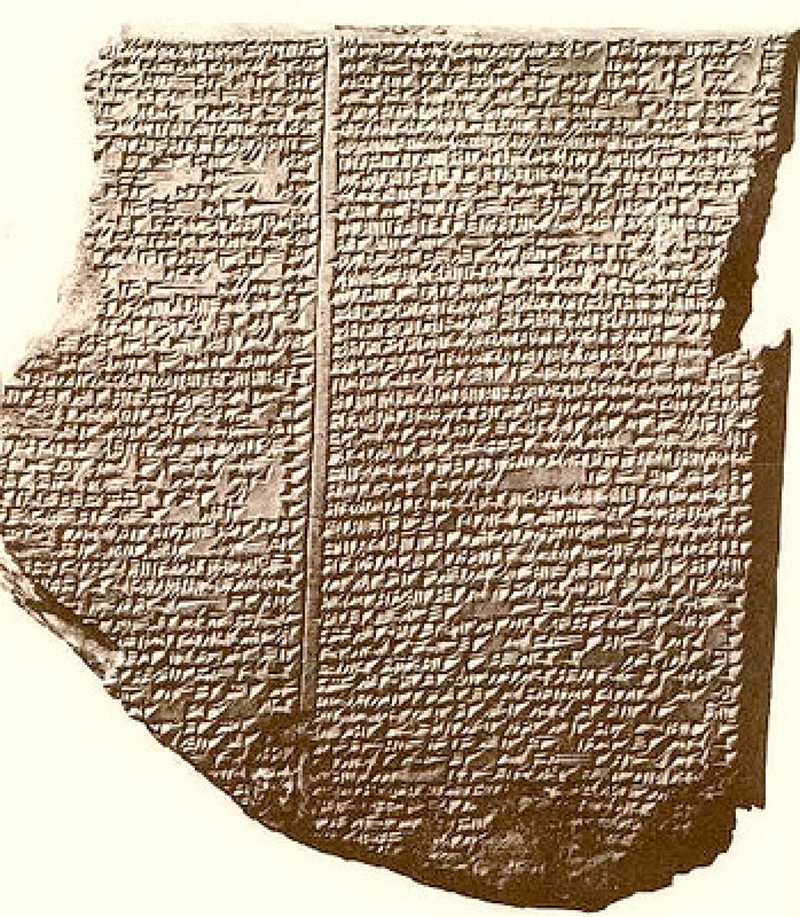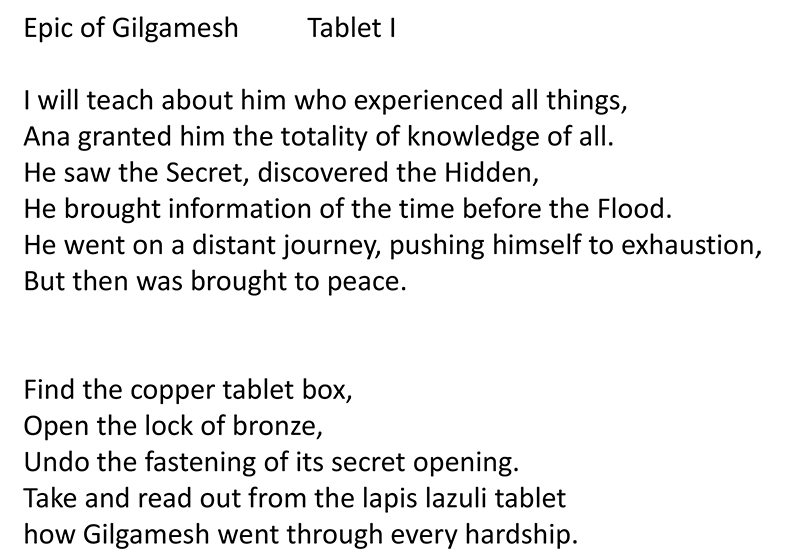From The Reader Bookshelf… The Epic of Gilgamesh
As part of our ongoing work around The Reader Bookshelf, we've asked staff to share their thoughts about some of the inspirational texts in the collection.
This week, The Reader's founder and director, Jane Davis, tells us why she chose the Epic of Gilgamesh for the bookshelf, and what it means to her.

Words by Jane Davis
I was the person who suggested the Epic of Gilgamesh should go on the Walking the Earth bookshelf, so thought I’d better say why…
I first heard of Gilgamesh from Doris Lessing’s sci-fi novel, Shikasta, which was a life changing book for me when I was in my mid-twenties. That work of fiction changed me from an anarchic feminist cold-war nihilist who believed we were all doomed by the patriarchy and there was nothing we could do about anything so we might as well eat drink and be merry in whatever ways we liked, to someone who could believe that human lives might have creative purpose and deep agency. And somehow that led me to start, ten, twenty, years later, the work that was to become The Reader. That’s how stories work, usually slowly and with no immediately quantifiable outcome.
In Some Remarks at the start of Shikasta, Doris mentions some of the ancient literary sources (the story of Gilgamesh, the Old Testament, the Torah, the Apocrypha, the New Testament, the Koran) she has used to summon her imagination for her novel. I’d never heard of Gilgamesh, and the other books she mentioned seemed part of a world-mind I was in opposition to. Nevertheless, I tracked Gilgamesh, and eventually the others, down.
I can’t remember what format I read it in in 1980 – maybe there was an old Penguin Classic. A new translation by Andrew George was published in 1999, and I have used that ever since. I don’t usually like introductions, but in this book it is really worth reading. Andrew George tells us that the poet Rilke was knocked out by the early C19 translations; ‘Gilgamesh is stupendous’ Rilke said referring to it as ‘das Epos der Todesfurcht’ – the epic about the fear of death. What I saw (what I was looking for) was a story of one individual’s journey through the failures and successes and then more failures of his life.
There’s so much in it – how and why to take responsibility, what leadership and what family is… What is our nature? What does our nurture contribute to our character and fate? But I was also fascinated by the ancient physical form of the poem - its manuscripts are cuneiform clay tablets, which were invented about 3000 years ago, in the area that is now the near and middle east – Iraq, Kuwait, Turkey and Syria.
I was fascinated by the idea that humans had been transmitting feelings and ideas, via story and poem, encoded on physical objects, stone and tablets, papyrus, paper (and eventually computer chips). I still am fascinated by this most ancient human technology, which is as George Saunders says in A Swim in a Pond in the Rain, ‘the most effective mode of mind-to-mind communication ever devised’. When I give talks and presentations about The Reader, I want to make people in the audience realise that’s what we have in our hands when we open a book, and I have often used a slide with a few lines of Gilgamesh to show how long this amazing, undervalued tech has been with us.
And using the tech? To find what? That despite the deep diversity of our experiences and culture - the story of Gilgamesh speaks to me, here, now. I thank Doris and her sci-fi excursion for this introduction, and hope you will find something to enjoy in it too.

Share
Related Articles

Storybarn Book of the Month: Saving the Butterfly
This month, as part of Refugee Week (16-22 June), we've been taking a look back at one of our favourites…

June’s Stories and Poems
This month we are celebrating the natural world, and especially the many wonderful creatures that live within it, with June’s…

April’s Monthly Stories and Poems
Our year of Wonder with The Reader Bookshelf 2024-25 is coming to a close – though we won’t be putting…


